Watched May 7 - 13, 2007
Peter Ibbetson (Henry Hathaway, 1935)
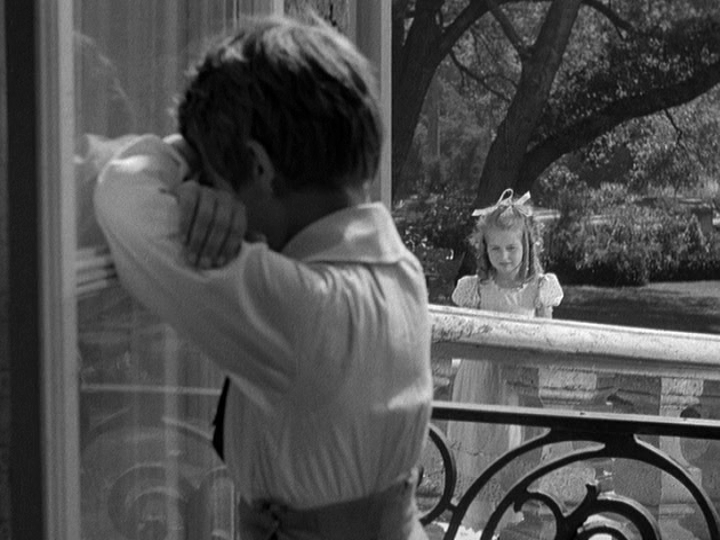 After all the effusive praise I've read about this recently (here and here, for example) -- I thought I might as well take a look at this long-unwatched DVD (I have this only because it came as an "extra" in the Cooper set I bought in order to see Lubitsch's Design for Living). I did enjoy this to some extent -- despite wooden performances (not just by Cooper and Ann Harding -- but by virtually everyone in the cast) and over-the-top (and clunky) dialog.
After all the effusive praise I've read about this recently (here and here, for example) -- I thought I might as well take a look at this long-unwatched DVD (I have this only because it came as an "extra" in the Cooper set I bought in order to see Lubitsch's Design for Living). I did enjoy this to some extent -- despite wooden performances (not just by Cooper and Ann Harding -- but by virtually everyone in the cast) and over-the-top (and clunky) dialog. 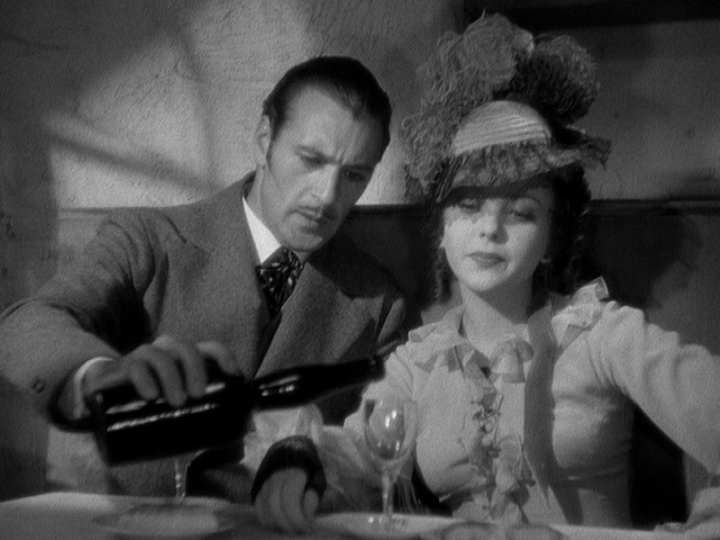 Ida Lupino provides a bright spot in the cast, as an English expatriate Cooper meets during a return visit to Paris (as an adult). The main virtue here was the superb cinematography by Charles Lang -- but I really would be interested in seeing the 1921 version (called "Forever" -- directed by George Fitzmaurice and shot by Arthur C. Miller) -- in order to see how much of the "look" of the 1935 film was derived from that earlier version.
Ida Lupino provides a bright spot in the cast, as an English expatriate Cooper meets during a return visit to Paris (as an adult). The main virtue here was the superb cinematography by Charles Lang -- but I really would be interested in seeing the 1921 version (called "Forever" -- directed by George Fitzmaurice and shot by Arthur C. Miller) -- in order to see how much of the "look" of the 1935 film was derived from that earlier version.
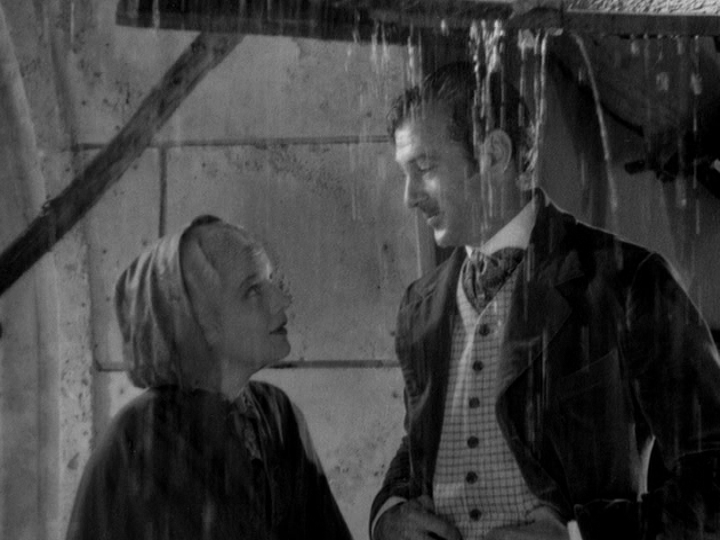 George Du Maurier (grandfather of Daphne, apparently) seems to have overdosed on Wuthering Heights shortly before writing the novel on which this film was based. This sort of Victorian ultra-romanticism clearly appeals to some people, but it is something that I find fundamentally alien and unappealing.
George Du Maurier (grandfather of Daphne, apparently) seems to have overdosed on Wuthering Heights shortly before writing the novel on which this film was based. This sort of Victorian ultra-romanticism clearly appeals to some people, but it is something that I find fundamentally alien and unappealing.
More screen shots:
http://i9.photobucket.com/albums/a59/mkerpan/peter/ibbetson01.png
http://i9.photobucket.com/albums/a59/mkerpan/peter/ibbetson03.png
http://i9.photobucket.com/albums/a59/mkerpan/peter/ibbetson05.png
http://i9.photobucket.com/albums/a59/mkerpan/peter/ibbetson07.png
http://i9.photobucket.com/albums/a59/mkerpan/peter/ibbetson08.png
http://i9.photobucket.com/albums/a59/mkerpan/peter/ibbetson09.png
Arakure / Untamed (Mikio Naruse, 1957)
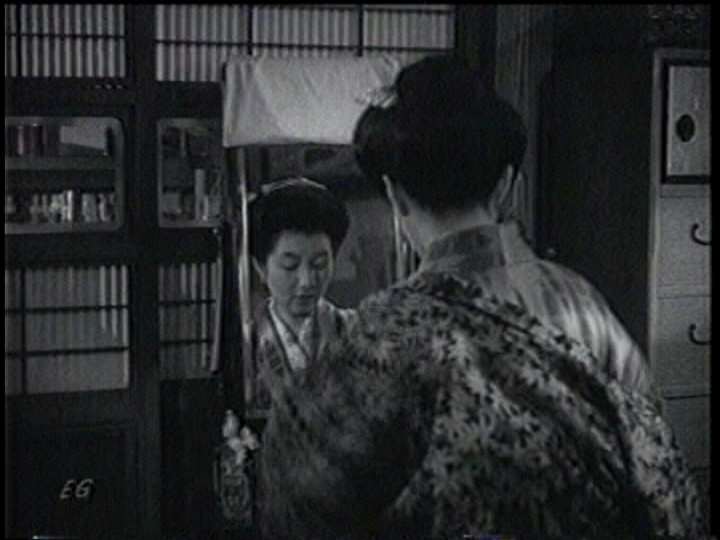 This is one of the small handful of Japanese films that actually depicts life during the brief Taisho era (formally 1912 to 1926 -- but Crown Prince Hirohito took over as regent in 1919 due to the ill health of his father). It is quite fascinating to see this transitional era depicted (apparently with considerable care and a pretty decent budget).
This is one of the small handful of Japanese films that actually depicts life during the brief Taisho era (formally 1912 to 1926 -- but Crown Prince Hirohito took over as regent in 1919 due to the ill health of his father). It is quite fascinating to see this transitional era depicted (apparently with considerable care and a pretty decent budget).
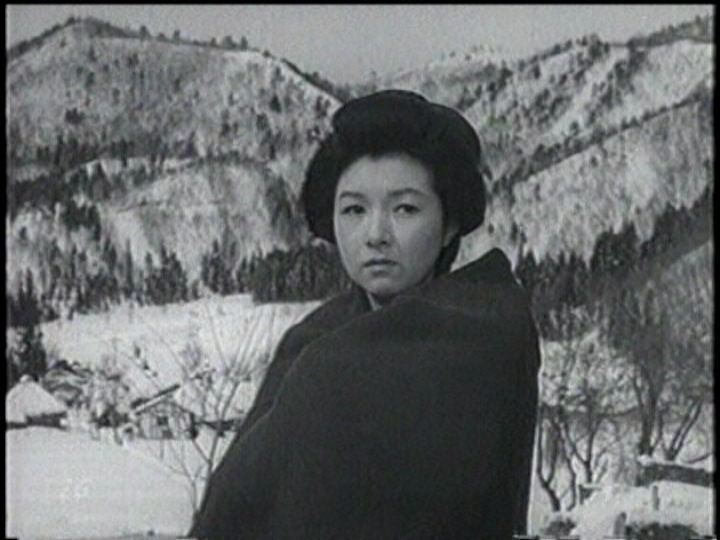 The central figure here is Hideko Takamine -- who portrays a would-be business-woman, forced to always depend on men (due to the official limitations on women's rights). Unfortunately, the men in her life always let her down (first Masayuki Mori and then Daisuke Kato). To an extent, her driven attitude to pursuing business success has some role in her mates' tendency to stray -- but men are portrayed as rather weak characters (Mori romantically so -- Kato comically).
The central figure here is Hideko Takamine -- who portrays a would-be business-woman, forced to always depend on men (due to the official limitations on women's rights). Unfortunately, the men in her life always let her down (first Masayuki Mori and then Daisuke Kato). To an extent, her driven attitude to pursuing business success has some role in her mates' tendency to stray -- but men are portrayed as rather weak characters (Mori romantically so -- Kato comically). 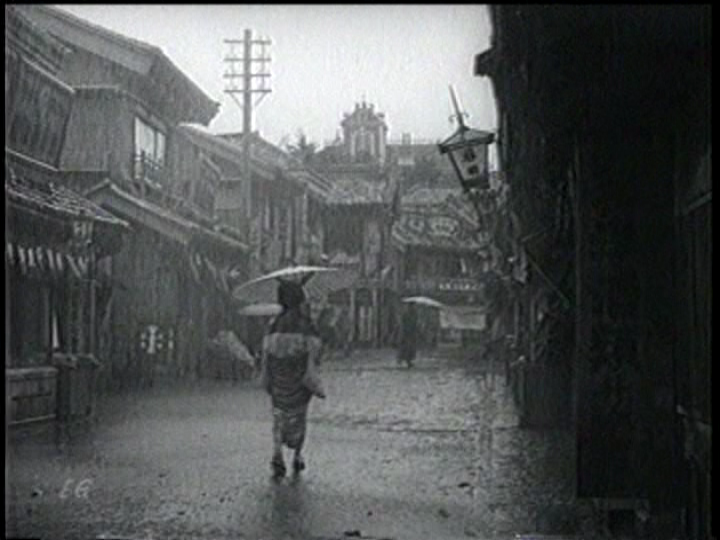 Takamine's nemesis is Mitsuko Miura -- who is a serial provoker of marital discord. Ken Uehara and Tatsuya Nakadai also show up in this (not many films had so many male idols). Not quite the level of Naruse's preceding film (Flowing), but visually lovely, well-acted and interesting (and unusual) story-wise. Yet another successful 50s Naruse film.
Takamine's nemesis is Mitsuko Miura -- who is a serial provoker of marital discord. Ken Uehara and Tatsuya Nakadai also show up in this (not many films had so many male idols). Not quite the level of Naruse's preceding film (Flowing), but visually lovely, well-acted and interesting (and unusual) story-wise. Yet another successful 50s Naruse film.
More pictures:
http://i9.photobucket.com/albums/a59/mkerpan/arakure/arakure01.png
http://i9.photobucket.com/albums/a59/mkerpan/arakure/arakure02.png
http://i9.photobucket.com/albums/a59/mkerpan/arakure/arakure04.png
http://i9.photobucket.com/albums/a59/mkerpan/arakure/arakure05.png
http://i9.photobucket.com/albums/a59/mkerpan/arakure/arakure06.png
http://i9.photobucket.com/albums/a59/mkerpan/arakure/arakure08.png
http://i9.photobucket.com/albums/a59/mkerpan/arakure/arakure09.png
http://i9.photobucket.com/albums/a59/mkerpan/arakure/arakure10.png
http://i9.photobucket.com/albums/a59/mkerpan/arakure/arakure11.png
http://i9.photobucket.com/albums/a59/mkerpan/arakure/arakure12.png
http://i9.photobucket.com/albums/a59/mkerpan/arakure/arakure13.png
http://i9.photobucket.com/albums/a59/mkerpan/arakure/arakure14.png
http://i9.photobucket.com/albums/a59/mkerpan/arakure/arakure15.png
http://i9.photobucket.com/albums/a59/mkerpan/arakure/arakure16.png
http://i9.photobucket.com/albums/a59/mkerpan/arakure/arakure17.png
http://i9.photobucket.com/albums/a59/mkerpan/arakure/arakure18.png
http://i9.photobucket.com/albums/a59/mkerpan/arakure/arakure19.png
http://i9.photobucket.com/albums/a59/mkerpan/arakure/arakure20.png
http://i9.photobucket.com/albums/a59/mkerpan/arakure/arakure21.png
http://i9.photobucket.com/albums/a59/mkerpan/arakure/arakure22.png
http://i9.photobucket.com/albums/a59/mkerpan/arakure/arakure23.png
http://i9.photobucket.com/albums/a59/mkerpan/arakure/arakure24.png
Les bons débarras / Good Riddance (Francis Mankiewicz, 1980)
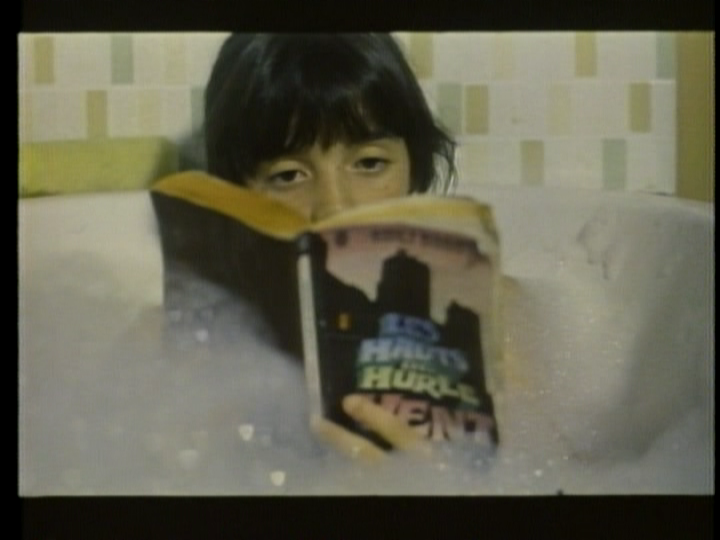 This film walked off with most of the Canadian film awards for 1980 -- and rightfully so. On the surface a naturalistic family drama about a single woman (Michelle -- Marie Tifo), her young daughter (Mann -- Charlotte Laurier) and a mentally challenged younger brother (Ti-Guy -- Germaine Houde).
This film walked off with most of the Canadian film awards for 1980 -- and rightfully so. On the surface a naturalistic family drama about a single woman (Michelle -- Marie Tifo), her young daughter (Mann -- Charlotte Laurier) and a mentally challenged younger brother (Ti-Guy -- Germaine Houde). 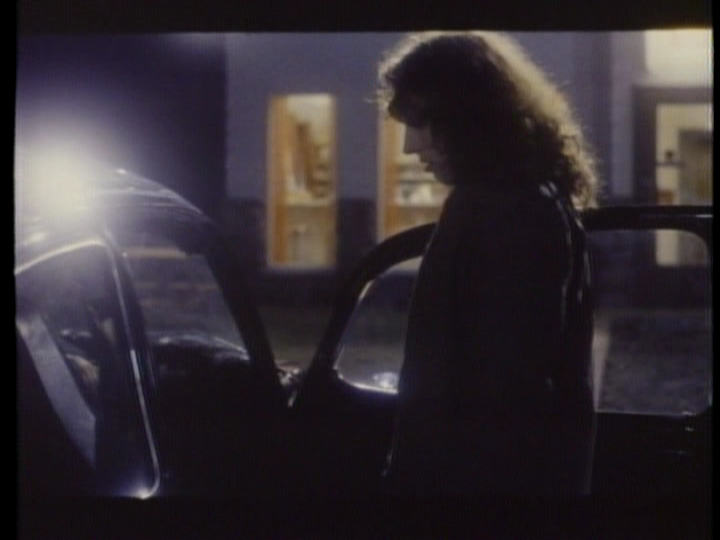 Michelle just barely keeps the family afloat, running a wood-cutting business (with the rather ineffectual assistance of her brother) in the Laurentides region of Quebec. She is in love with a local police official -- a romance that infuriates her daughter. Manon is also disgusted by the attention her mother gives her pathetic (perennially trouble-causing) uncle. Manon also hates school.
Michelle just barely keeps the family afloat, running a wood-cutting business (with the rather ineffectual assistance of her brother) in the Laurentides region of Quebec. She is in love with a local police official -- a romance that infuriates her daughter. Manon is also disgusted by the attention her mother gives her pathetic (perennially trouble-causing) uncle. Manon also hates school. 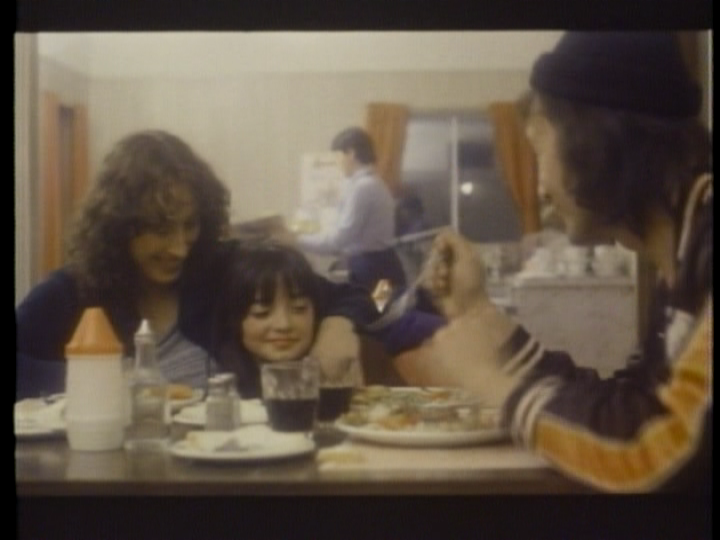 She loves two things, however, "Wuthering Heights" (definitely not a good influence, in her case) and her mother (with positively pathological jealousy). Ultimately, this is a horror film, rendered all the more scary due to the matter of fact "ordinariness" of the presentation. (Note: The Mankiewicz who made this film was, in fact, a Montreal relative of the Hollywood Mankiewiczes).
She loves two things, however, "Wuthering Heights" (definitely not a good influence, in her case) and her mother (with positively pathological jealousy). Ultimately, this is a horror film, rendered all the more scary due to the matter of fact "ordinariness" of the presentation. (Note: The Mankiewicz who made this film was, in fact, a Montreal relative of the Hollywood Mankiewiczes).
More shots:
http://i9.photobucket.com/albums/a59/mkerpan/riddance/debarras01.png
http://i9.photobucket.com/albums/a59/mkerpan/riddance/debarras02.png
http://i9.photobucket.com/albums/a59/mkerpan/riddance/debarras04.png
http://i9.photobucket.com/albums/a59/mkerpan/riddance/debarras05.png
http://i9.photobucket.com/albums/a59/mkerpan/riddance/debarras06.png
http://i9.photobucket.com/albums/a59/mkerpan/riddance/debarras07.png
http://i9.photobucket.com/albums/a59/mkerpan/riddance/debarras08.png
http://i9.photobucket.com/albums/a59/mkerpan/riddance/debarras09.png
http://i9.photobucket.com/albums/a59/mkerpan/riddance/debarras10.png
http://i9.photobucket.com/albums/a59/mkerpan/riddance/debarras13.png
http://i9.photobucket.com/albums/a59/mkerpan/riddance/debarras14.png
Omohide poro poro / Only Yesterday / literally Remember {tear} drop by drop! (Isao Takahata, 1991)
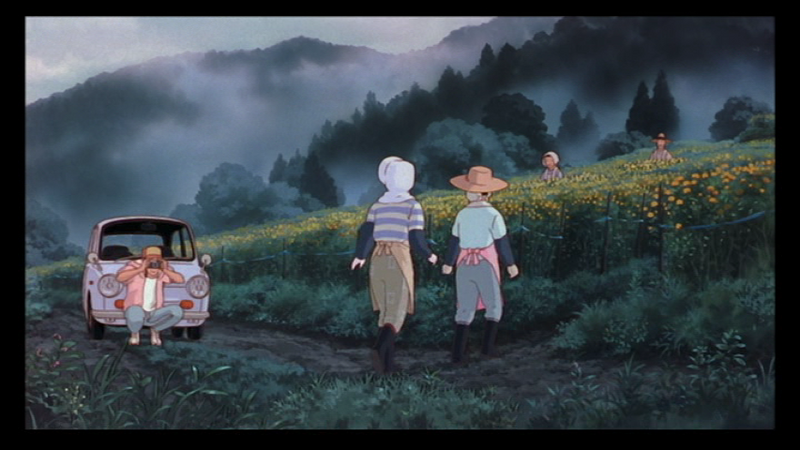 Takahata's animated film about a vaguely dissatisfied, 20-something, Tokyo white collar worker -- who goes on a working vacation (on a farm belonging to relatives of a sister's husband) is my favorite animated feature film -- by a wide margin.
Takahata's animated film about a vaguely dissatisfied, 20-something, Tokyo white collar worker -- who goes on a working vacation (on a farm belonging to relatives of a sister's husband) is my favorite animated feature film -- by a wide margin. 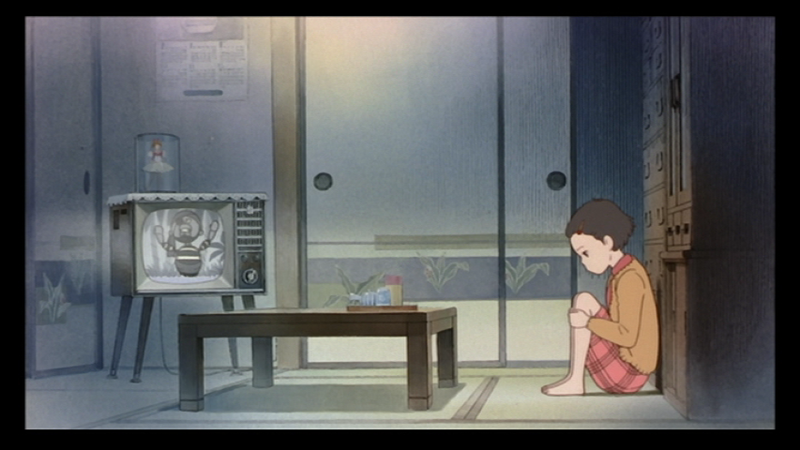 As our heroine makes her way through her vacation, she is "haunted" by memories of her life back when she was in fifth grade. The presentation of her recollections of her childhood are especially wonderful. And this has the best final credits sequence of any film -- ever.
As our heroine makes her way through her vacation, she is "haunted" by memories of her life back when she was in fifth grade. The presentation of her recollections of her childhood are especially wonderful. And this has the best final credits sequence of any film -- ever.
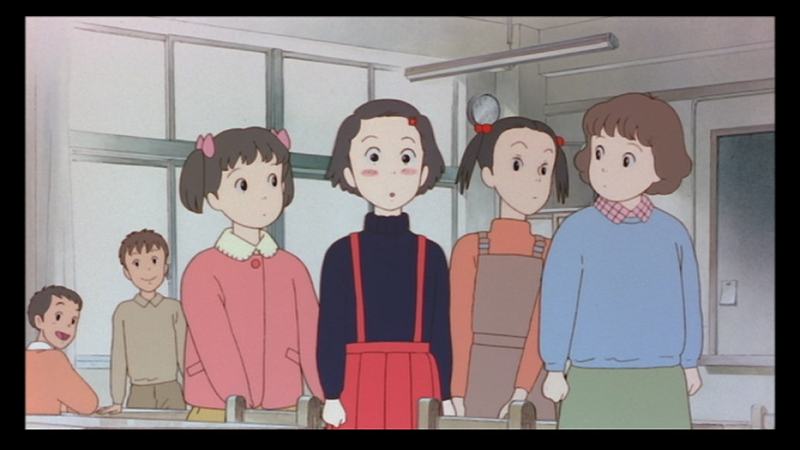
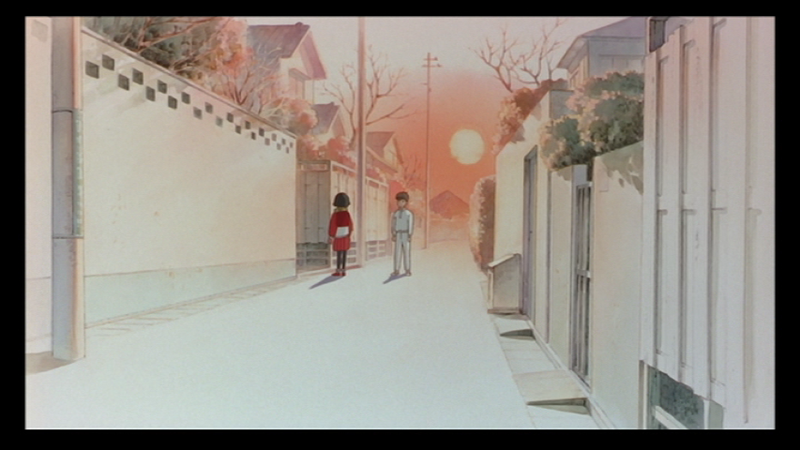
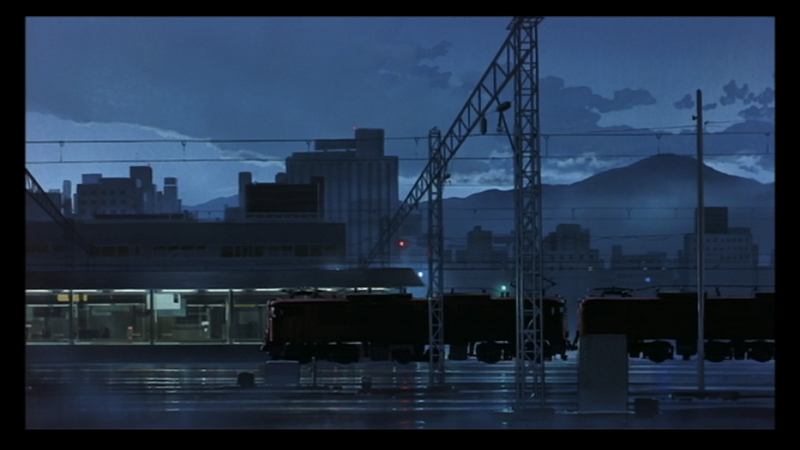
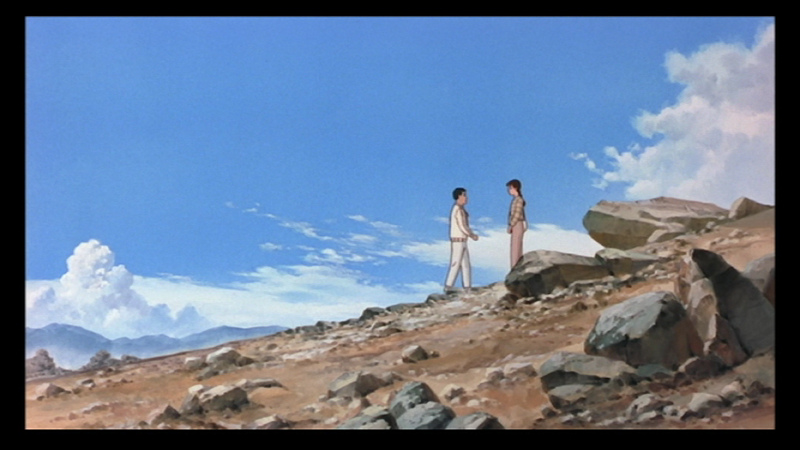
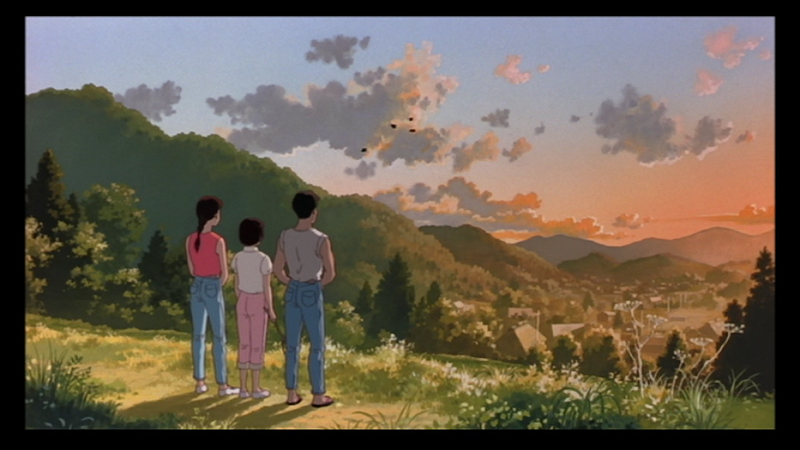
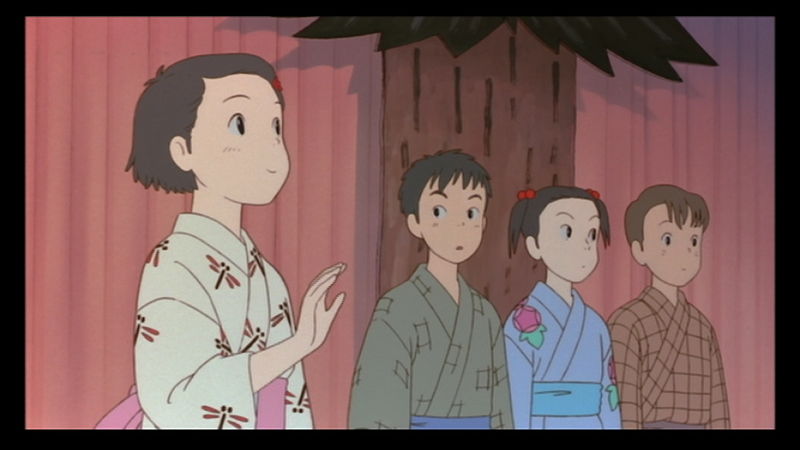
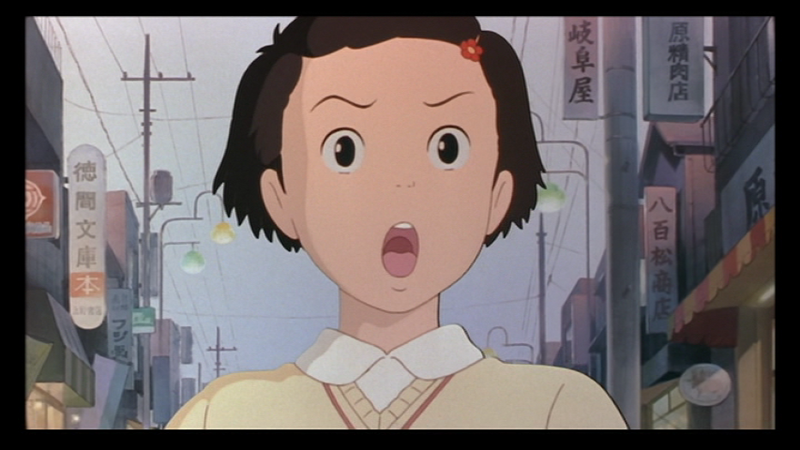
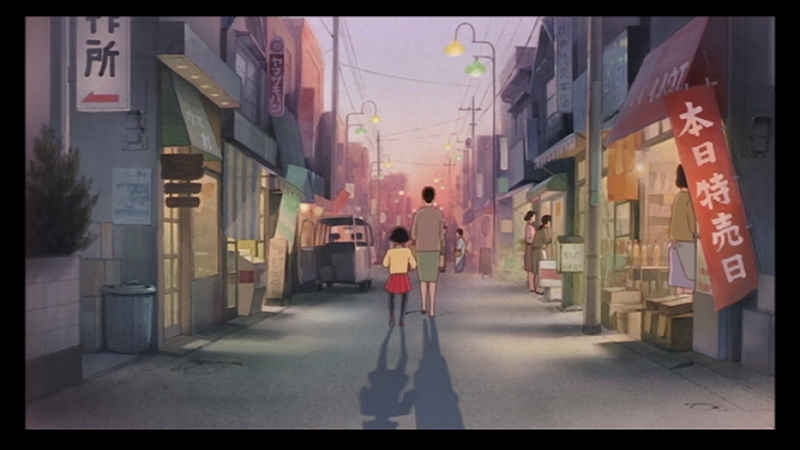
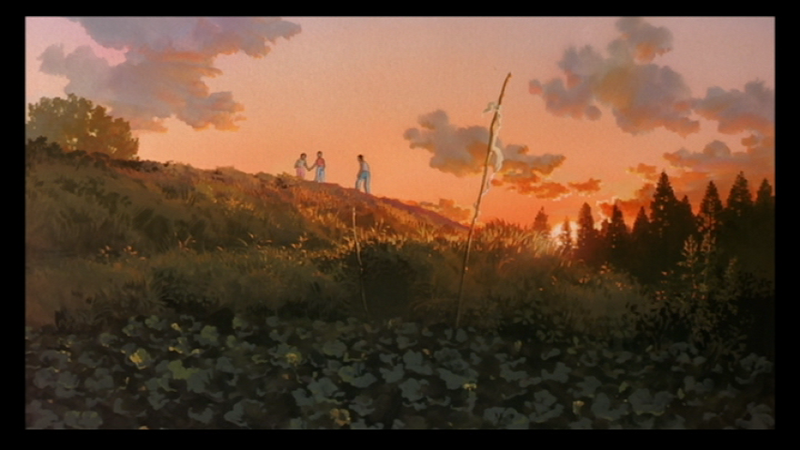
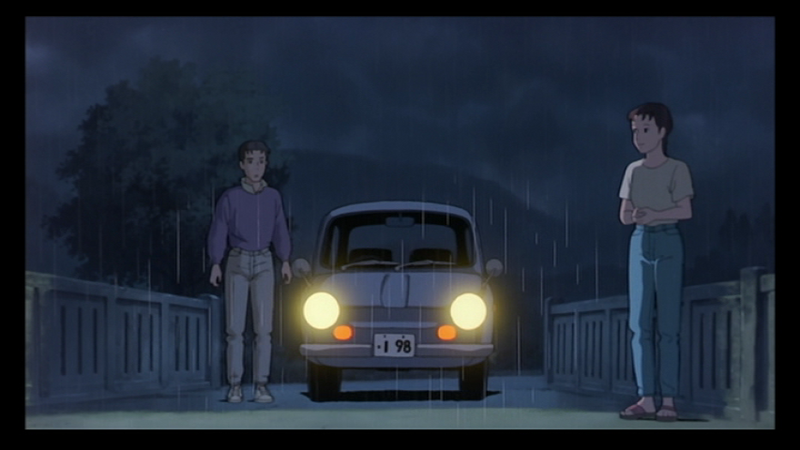
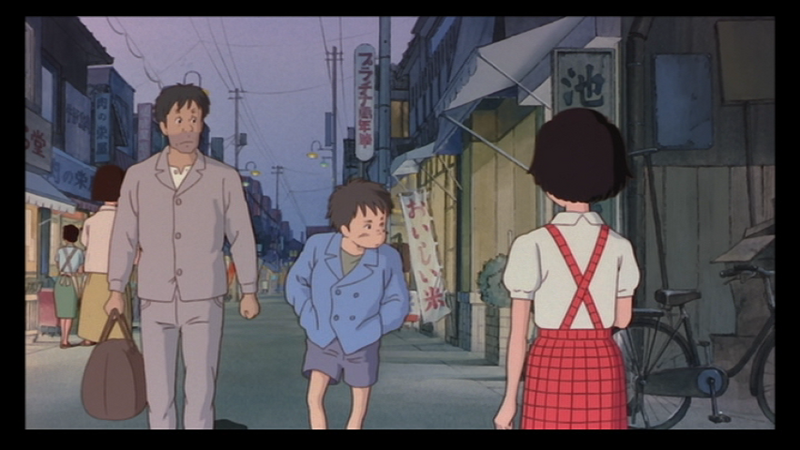
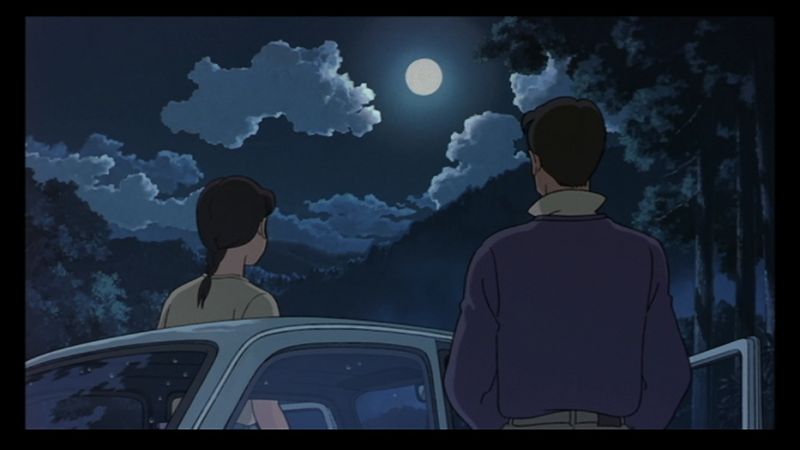
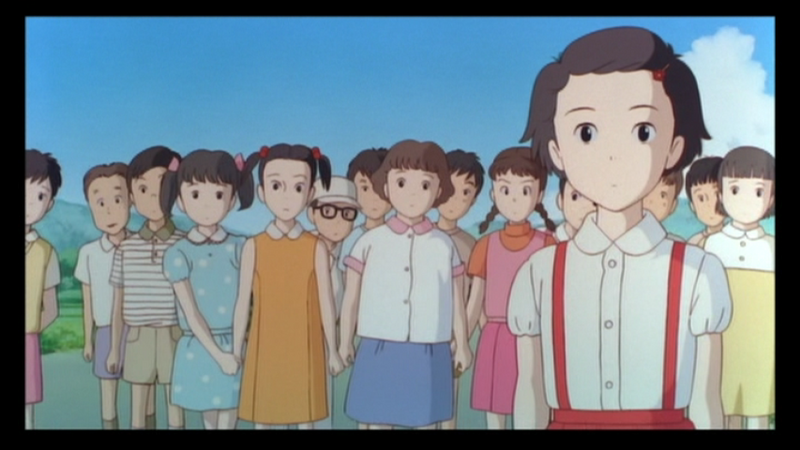
 After all the effusive praise I've read about this recently (here and here, for example) -- I thought I might as well take a look at this long-unwatched DVD (I have this only because it came as an "extra" in the Cooper set I bought in order to see Lubitsch's Design for Living). I did enjoy this to some extent -- despite wooden performances (not just by Cooper and Ann Harding -- but by virtually everyone in the cast) and over-the-top (and clunky) dialog.
After all the effusive praise I've read about this recently (here and here, for example) -- I thought I might as well take a look at this long-unwatched DVD (I have this only because it came as an "extra" in the Cooper set I bought in order to see Lubitsch's Design for Living). I did enjoy this to some extent -- despite wooden performances (not just by Cooper and Ann Harding -- but by virtually everyone in the cast) and over-the-top (and clunky) dialog.  Ida Lupino provides a bright spot in the cast, as an English expatriate Cooper meets during a return visit to Paris (as an adult). The main virtue here was the superb cinematography by Charles Lang -- but I really would be interested in seeing the 1921 version (called "Forever" -- directed by George Fitzmaurice and shot by Arthur C. Miller) -- in order to see how much of the "look" of the 1935 film was derived from that earlier version.
Ida Lupino provides a bright spot in the cast, as an English expatriate Cooper meets during a return visit to Paris (as an adult). The main virtue here was the superb cinematography by Charles Lang -- but I really would be interested in seeing the 1921 version (called "Forever" -- directed by George Fitzmaurice and shot by Arthur C. Miller) -- in order to see how much of the "look" of the 1935 film was derived from that earlier version. George Du Maurier (grandfather of Daphne, apparently) seems to have overdosed on Wuthering Heights shortly before writing the novel on which this film was based. This sort of Victorian ultra-romanticism clearly appeals to some people, but it is something that I find fundamentally alien and unappealing.
George Du Maurier (grandfather of Daphne, apparently) seems to have overdosed on Wuthering Heights shortly before writing the novel on which this film was based. This sort of Victorian ultra-romanticism clearly appeals to some people, but it is something that I find fundamentally alien and unappealing.More screen shots:
http://i9.photobucket.com/albums/a59/mkerpan/peter/ibbetson01.png
http://i9.photobucket.com/albums/a59/mkerpan/peter/ibbetson03.png
http://i9.photobucket.com/albums/a59/mkerpan/peter/ibbetson05.png
http://i9.photobucket.com/albums/a59/mkerpan/peter/ibbetson07.png
http://i9.photobucket.com/albums/a59/mkerpan/peter/ibbetson08.png
http://i9.photobucket.com/albums/a59/mkerpan/peter/ibbetson09.png
Arakure / Untamed (Mikio Naruse, 1957)
 This is one of the small handful of Japanese films that actually depicts life during the brief Taisho era (formally 1912 to 1926 -- but Crown Prince Hirohito took over as regent in 1919 due to the ill health of his father). It is quite fascinating to see this transitional era depicted (apparently with considerable care and a pretty decent budget).
This is one of the small handful of Japanese films that actually depicts life during the brief Taisho era (formally 1912 to 1926 -- but Crown Prince Hirohito took over as regent in 1919 due to the ill health of his father). It is quite fascinating to see this transitional era depicted (apparently with considerable care and a pretty decent budget). The central figure here is Hideko Takamine -- who portrays a would-be business-woman, forced to always depend on men (due to the official limitations on women's rights). Unfortunately, the men in her life always let her down (first Masayuki Mori and then Daisuke Kato). To an extent, her driven attitude to pursuing business success has some role in her mates' tendency to stray -- but men are portrayed as rather weak characters (Mori romantically so -- Kato comically).
The central figure here is Hideko Takamine -- who portrays a would-be business-woman, forced to always depend on men (due to the official limitations on women's rights). Unfortunately, the men in her life always let her down (first Masayuki Mori and then Daisuke Kato). To an extent, her driven attitude to pursuing business success has some role in her mates' tendency to stray -- but men are portrayed as rather weak characters (Mori romantically so -- Kato comically).  Takamine's nemesis is Mitsuko Miura -- who is a serial provoker of marital discord. Ken Uehara and Tatsuya Nakadai also show up in this (not many films had so many male idols). Not quite the level of Naruse's preceding film (Flowing), but visually lovely, well-acted and interesting (and unusual) story-wise. Yet another successful 50s Naruse film.
Takamine's nemesis is Mitsuko Miura -- who is a serial provoker of marital discord. Ken Uehara and Tatsuya Nakadai also show up in this (not many films had so many male idols). Not quite the level of Naruse's preceding film (Flowing), but visually lovely, well-acted and interesting (and unusual) story-wise. Yet another successful 50s Naruse film.More pictures:
http://i9.photobucket.com/albums/a59/mkerpan/arakure/arakure01.png
http://i9.photobucket.com/albums/a59/mkerpan/arakure/arakure02.png
http://i9.photobucket.com/albums/a59/mkerpan/arakure/arakure04.png
http://i9.photobucket.com/albums/a59/mkerpan/arakure/arakure05.png
http://i9.photobucket.com/albums/a59/mkerpan/arakure/arakure06.png
http://i9.photobucket.com/albums/a59/mkerpan/arakure/arakure08.png
http://i9.photobucket.com/albums/a59/mkerpan/arakure/arakure09.png
http://i9.photobucket.com/albums/a59/mkerpan/arakure/arakure10.png
http://i9.photobucket.com/albums/a59/mkerpan/arakure/arakure11.png
http://i9.photobucket.com/albums/a59/mkerpan/arakure/arakure12.png
http://i9.photobucket.com/albums/a59/mkerpan/arakure/arakure13.png
http://i9.photobucket.com/albums/a59/mkerpan/arakure/arakure14.png
http://i9.photobucket.com/albums/a59/mkerpan/arakure/arakure15.png
http://i9.photobucket.com/albums/a59/mkerpan/arakure/arakure16.png
http://i9.photobucket.com/albums/a59/mkerpan/arakure/arakure17.png
http://i9.photobucket.com/albums/a59/mkerpan/arakure/arakure18.png
http://i9.photobucket.com/albums/a59/mkerpan/arakure/arakure19.png
http://i9.photobucket.com/albums/a59/mkerpan/arakure/arakure20.png
http://i9.photobucket.com/albums/a59/mkerpan/arakure/arakure21.png
http://i9.photobucket.com/albums/a59/mkerpan/arakure/arakure22.png
http://i9.photobucket.com/albums/a59/mkerpan/arakure/arakure23.png
http://i9.photobucket.com/albums/a59/mkerpan/arakure/arakure24.png
Les bons débarras / Good Riddance (Francis Mankiewicz, 1980)
 This film walked off with most of the Canadian film awards for 1980 -- and rightfully so. On the surface a naturalistic family drama about a single woman (Michelle -- Marie Tifo), her young daughter (Mann -- Charlotte Laurier) and a mentally challenged younger brother (Ti-Guy -- Germaine Houde).
This film walked off with most of the Canadian film awards for 1980 -- and rightfully so. On the surface a naturalistic family drama about a single woman (Michelle -- Marie Tifo), her young daughter (Mann -- Charlotte Laurier) and a mentally challenged younger brother (Ti-Guy -- Germaine Houde).  Michelle just barely keeps the family afloat, running a wood-cutting business (with the rather ineffectual assistance of her brother) in the Laurentides region of Quebec. She is in love with a local police official -- a romance that infuriates her daughter. Manon is also disgusted by the attention her mother gives her pathetic (perennially trouble-causing) uncle. Manon also hates school.
Michelle just barely keeps the family afloat, running a wood-cutting business (with the rather ineffectual assistance of her brother) in the Laurentides region of Quebec. She is in love with a local police official -- a romance that infuriates her daughter. Manon is also disgusted by the attention her mother gives her pathetic (perennially trouble-causing) uncle. Manon also hates school.  She loves two things, however, "Wuthering Heights" (definitely not a good influence, in her case) and her mother (with positively pathological jealousy). Ultimately, this is a horror film, rendered all the more scary due to the matter of fact "ordinariness" of the presentation. (Note: The Mankiewicz who made this film was, in fact, a Montreal relative of the Hollywood Mankiewiczes).
She loves two things, however, "Wuthering Heights" (definitely not a good influence, in her case) and her mother (with positively pathological jealousy). Ultimately, this is a horror film, rendered all the more scary due to the matter of fact "ordinariness" of the presentation. (Note: The Mankiewicz who made this film was, in fact, a Montreal relative of the Hollywood Mankiewiczes).More shots:
http://i9.photobucket.com/albums/a59/mkerpan/riddance/debarras01.png
http://i9.photobucket.com/albums/a59/mkerpan/riddance/debarras02.png
http://i9.photobucket.com/albums/a59/mkerpan/riddance/debarras04.png
http://i9.photobucket.com/albums/a59/mkerpan/riddance/debarras05.png
http://i9.photobucket.com/albums/a59/mkerpan/riddance/debarras06.png
http://i9.photobucket.com/albums/a59/mkerpan/riddance/debarras07.png
http://i9.photobucket.com/albums/a59/mkerpan/riddance/debarras08.png
http://i9.photobucket.com/albums/a59/mkerpan/riddance/debarras09.png
http://i9.photobucket.com/albums/a59/mkerpan/riddance/debarras10.png
http://i9.photobucket.com/albums/a59/mkerpan/riddance/debarras13.png
http://i9.photobucket.com/albums/a59/mkerpan/riddance/debarras14.png
Omohide poro poro / Only Yesterday / literally Remember {tear} drop by drop! (Isao Takahata, 1991)
 Takahata's animated film about a vaguely dissatisfied, 20-something, Tokyo white collar worker -- who goes on a working vacation (on a farm belonging to relatives of a sister's husband) is my favorite animated feature film -- by a wide margin.
Takahata's animated film about a vaguely dissatisfied, 20-something, Tokyo white collar worker -- who goes on a working vacation (on a farm belonging to relatives of a sister's husband) is my favorite animated feature film -- by a wide margin.  As our heroine makes her way through her vacation, she is "haunted" by memories of her life back when she was in fifth grade. The presentation of her recollections of her childhood are especially wonderful. And this has the best final credits sequence of any film -- ever.
As our heroine makes her way through her vacation, she is "haunted" by memories of her life back when she was in fifth grade. The presentation of her recollections of her childhood are especially wonderful. And this has the best final credits sequence of any film -- ever.











